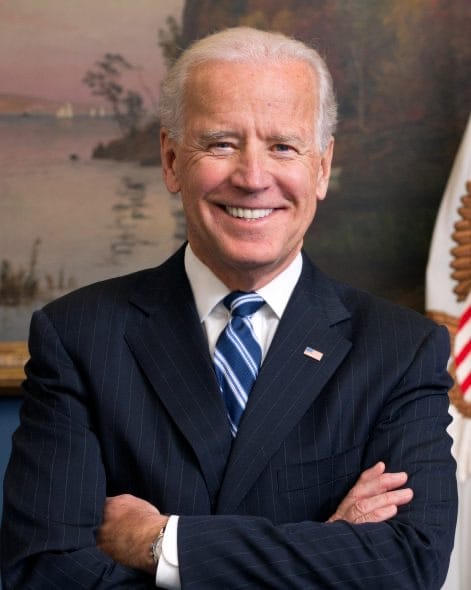President Biden on Wednesday, April 6, extended the pandemic moratorium on federal student loan payments and interest accrual through August, ending just three months before the midterm elections.
The president announced the extension until August 31 in a statement, citing the still ongoing recovery from the COVID-19 pandemic.
“To enable Americans to continue to get back on their feet after two of the hardest years this nation has ever faced, my Administration is extending the pause on federal student loan repayments through August 31st, 2022. That additional time will assist borrowers in achieving greater financial security and support the Department of Education’s efforts to continue improving student loan programs,” Biden said.
The freeze was set to lapse on May 1 per an extension signed by Biden in December, and the White House was under pressure by nearly 100 Democrats across both chambers to extend it. Loan payments were first put on hold in March 2020 under former President Trump and have since been extended five times.
Trump’s order froze the accrual of interest on federal student loans, effectively freezing $1.6 trillion in debt owed by more than 40 million Americans.
Biden said on Wednesday that “the economy was barely growing” when he first continued the pause in January 2021, and that now “America is stronger than we were a year ago.”
“However, as I recognized in recently extending the COVID-19 national emergency, we are still recovering from the pandemic and the unprecedented economic disruption it caused,” the president said. “If loan payments were to resume on schedule in May, analysis of recent data from the Federal Reserve suggests that millions of student loan borrowers would face significant economic hardship, and delinquencies and defaults could threaten Americans’ financial stability.”
The Hill first reported on Tuesday, April 5, that the announcement of another extension was expected to come this week, citing multiple sources.
Biden said that in September, when payments start again, the Department of Education will “offer additional flexibilities and support for all borrowers.”
“The Department of Education is committed to ensuring that student loan borrowers have a smooth transition back to repayment,” Education Sec. Miguel Cardona said in a statement. “This additional extension will allow borrowers to gain more financial security as the economy continues to improve and as the nation continues to recover from the COVID-19 pandemic.”
The new timeline falls short of the extension timeline that some Democrats had requested. Sen. Patty Murray (D-Wash.) was the leading voice in urging the president to extend the freeze through the end of the year, which would start payments up again after the midterm elections.
Biden, in his statement on Wednesday, did not mention the cancellation of student loans. In the 2020 campaign, he supported forgiving at least $10,000 in federal student loans per person.
A year ago, Biden requested a memo from the Department of Education to determine his authority to forgive student debt through executive action. Since then, the administration has not publicly announced if the memo is complete.
Advocates and other Democrats, including Senate Majority Leader Charles Schumer (D-N.Y.), have pressed for $50,000 per borrower or to cancel debt entirely. Schumer on Tuesday called for $50,000 forgiveness again after reports that the freeze would be extended.
“To extend the moratorium is a good thing, but of course I believe the President should go further and forgive $50,000 in student loans permanently,” he said in remarks at the Capitol.
Meanwhile, Republican lawmakers were critical of Biden for the freeze extension. Sen. Tom Cotton (R-Ark.) called the moratorium “an insult” and reckless on Tuesday.
“President Biden’s perpetual student loan payment moratorium is an insult to every American who responsibly paid debts. There’s no free lunch: this reckless move puts taxpayers on the hook for billions,” the senator said.
Thomas Gokey, an organizer with the Debt Collective, which advocates for student loan cancellation, called it “political malpractice” to start loan payments before the midterms.
“Debtors had to fight to win even an extension to the pause. We know that you can’t pause a crisis, Biden can cancel the debt today with a signature. It would be political malpractice to restart payments right before the midterms,” he told The Hill.
This article originally appeared on TheHill






